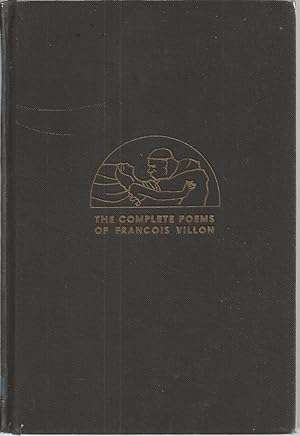
The Testaments of Francois Villon (1431 - 1463) - Complete Poems (outlaw poet)
Check my rate
| Main centres: | 1-3 business days |
| Regional areas: | 3-4 business days |
| Remote areas: | 3-5 business days |

| Main centres: | 1-3 business days |
| Regional areas: | 3-4 business days |
| Remote areas: | 3-5 business days |
The Great and Little Testaments of Francois Villon
Published by Liveright Publishing Corp, 1938, hardcover, 316 pages, bookplate, no dust jacket otherwise condition: basically as new.
François Villon (1431 after 1463) is a French poet of the Late Middle Ages.
He was involved in criminal behavior and had multiple encounters with the authorities and he wrote about these experiences in his poems.
In 1455, the first major recorded incident of Villon's life occurred. While in the Rue Saint-Jacques in the company of a priest named Giles and a girl named Isabeau, he Jean le Hardi, who was also with a priest, Philippe Chermoye A scuffle broke out and daggers were drawn. Sermaise, who is accused of having threatened and attacked Villon and drawn the first blood, not only received a dagger-thrust in return, but a blow from a stone, which struck him down. He died of his wounds. Villon fled, and was sentenced to banishment'.
The next incident was around Christmas 1456, the chapel of the Collège de Navarre was broken open and five hundred gold crowns stolen. Villon was involved in the robbery. The next date for which there are recorded whereabouts for Villon is the summer of 1461; Villon wrote that he spent that summer in the bishop's prison at Meung-sur-Loire.
Le Petit Testament, also known as Le Lais, was written in late 1456. The work is an ironic, comic poem that serves as Villon's will, listing bequests to his friends and acquaintances.
In 1461, at the age of thirty, Villon composed the longer work which came to be known as Le grand testament (14611462). This has generally been judged Villon's greatest work, and there is evidence in the work itself that Villon felt the same.
Villon was a great innovator in terms of the themes of poetry and, through these themes, a great renovator of the forms. He understood perfectly the medieval courtly ideal, but he often chose to write against the grain, reversing the values and celebrating the lowlifes destined for the gallows, falling happily into parody or lewd jokes, and constantly innovating in his diction and vocabulary; a few minor poems make extensive use of Parisian thieves' slang. Still Villon's verse is mostly about his own life, a record of poverty, trouble, and trial which was certainly shared by his poems' intended audience.
Villon's poems are sprinkled with mysteries and hidden jokes. They are peppered with the slang of the time and the underworld subculture in which Villon moved. His works are also replete with private jokes and full of the names of real people rich men, royal officials, lawyers, sex workers and policemen from medieval Paris..